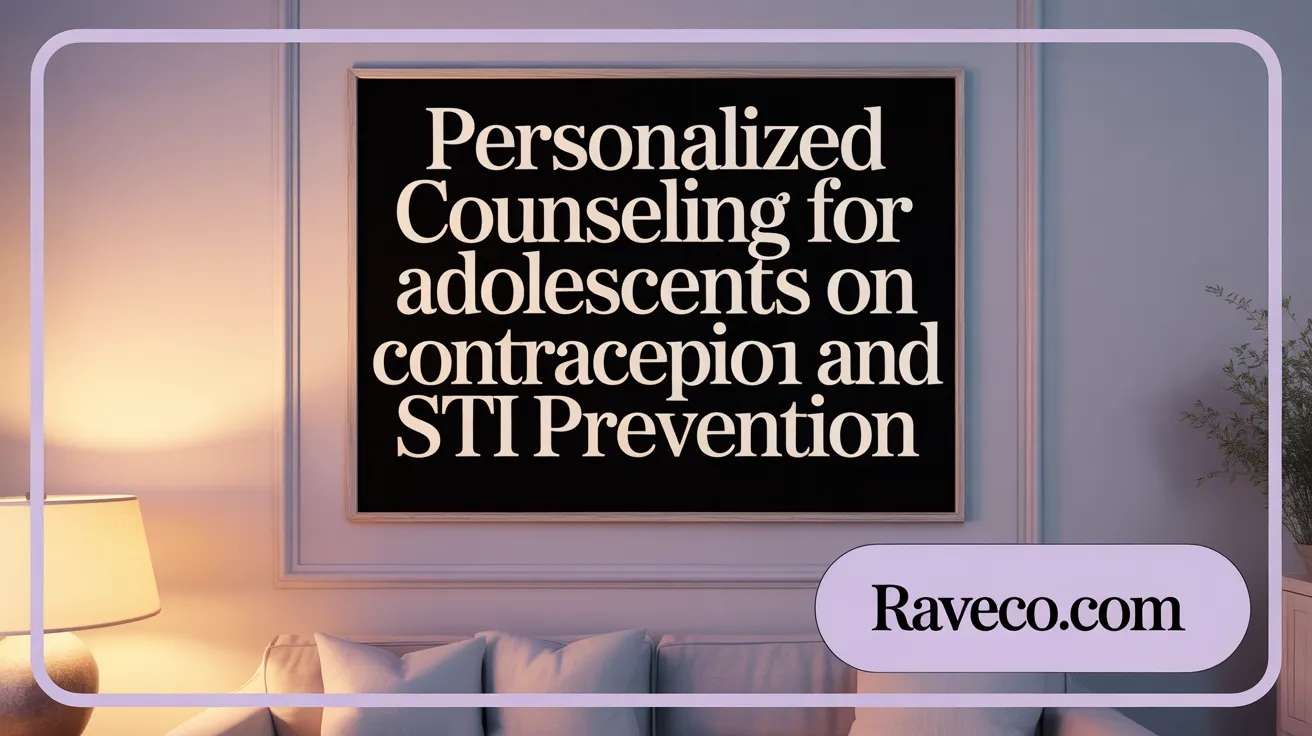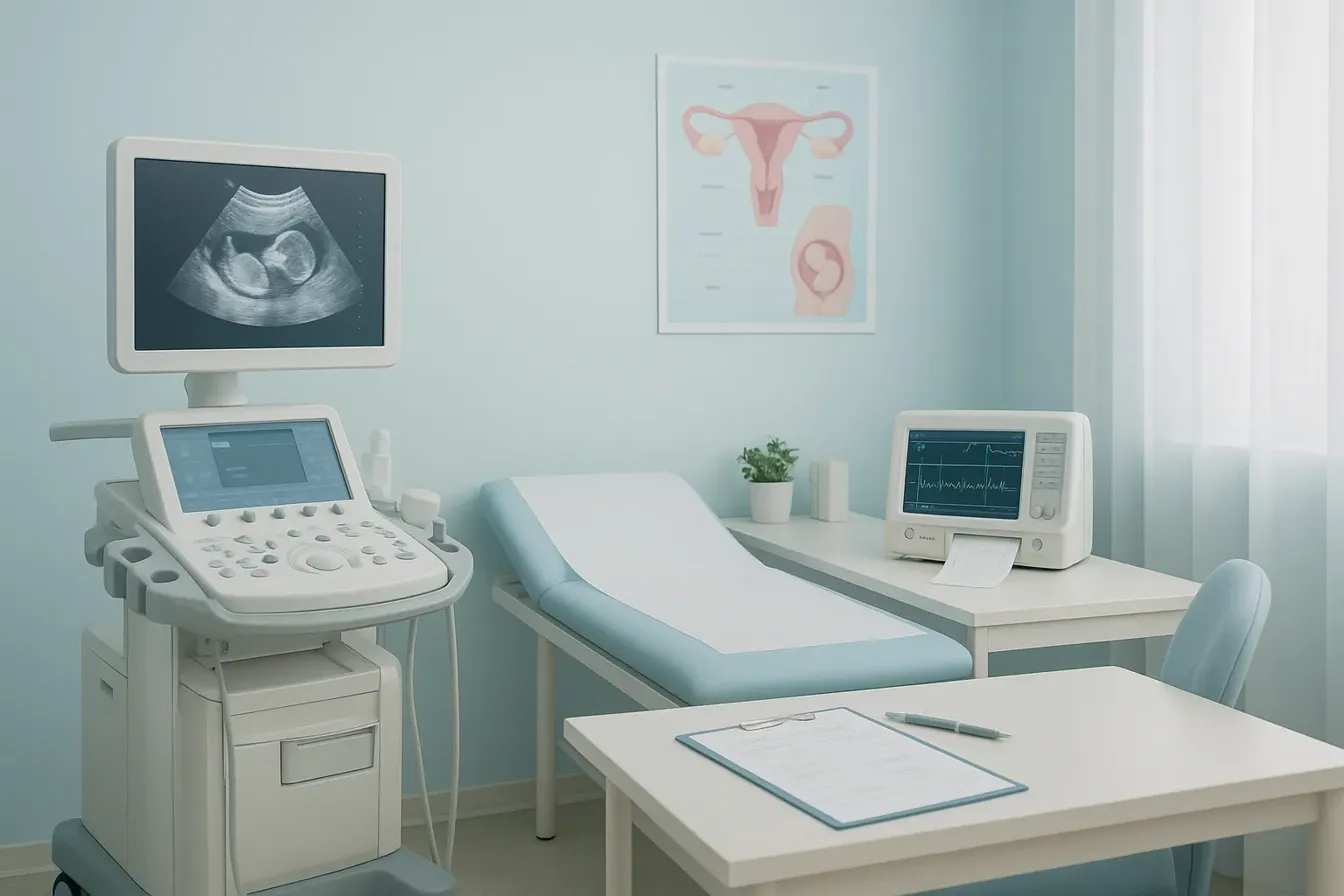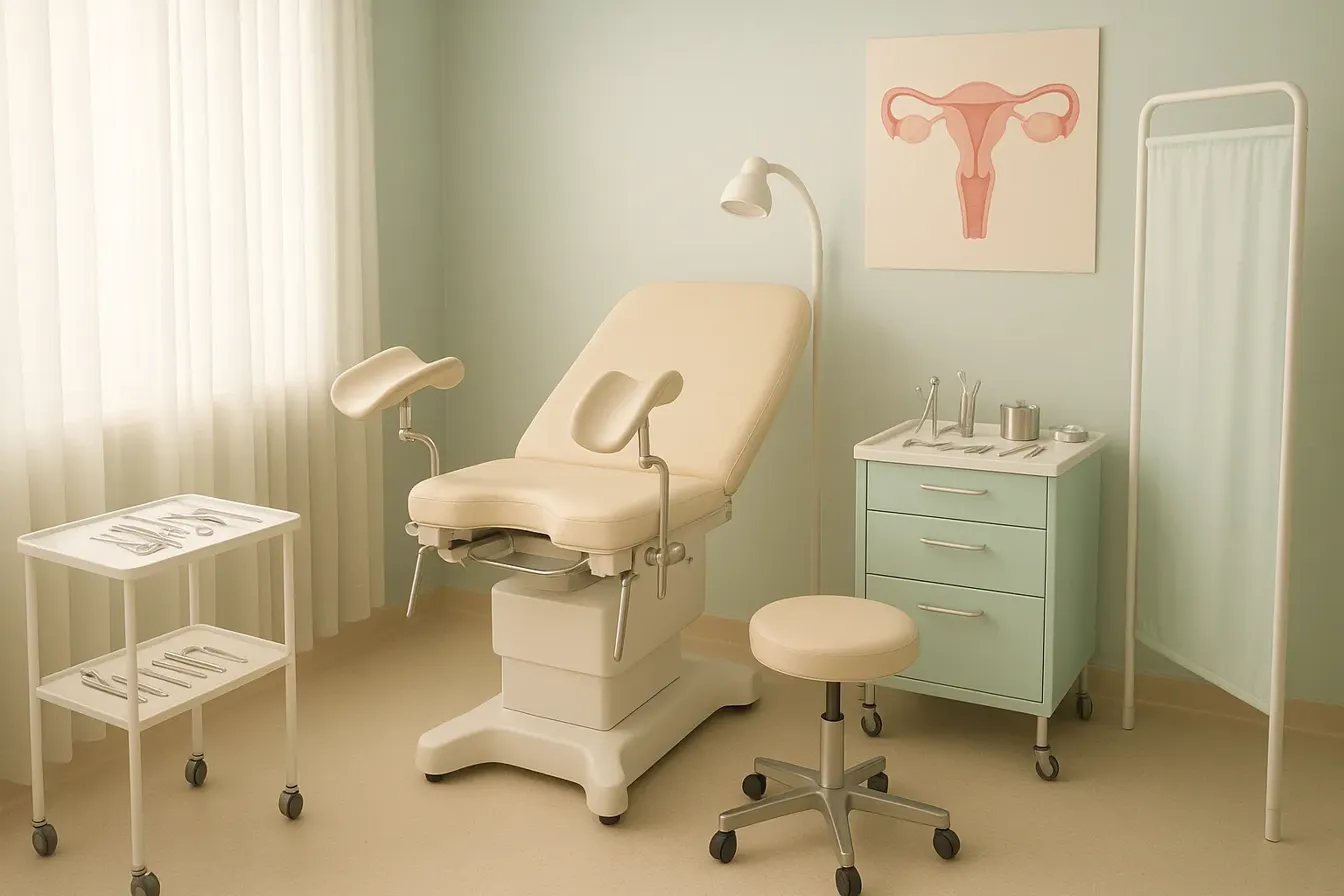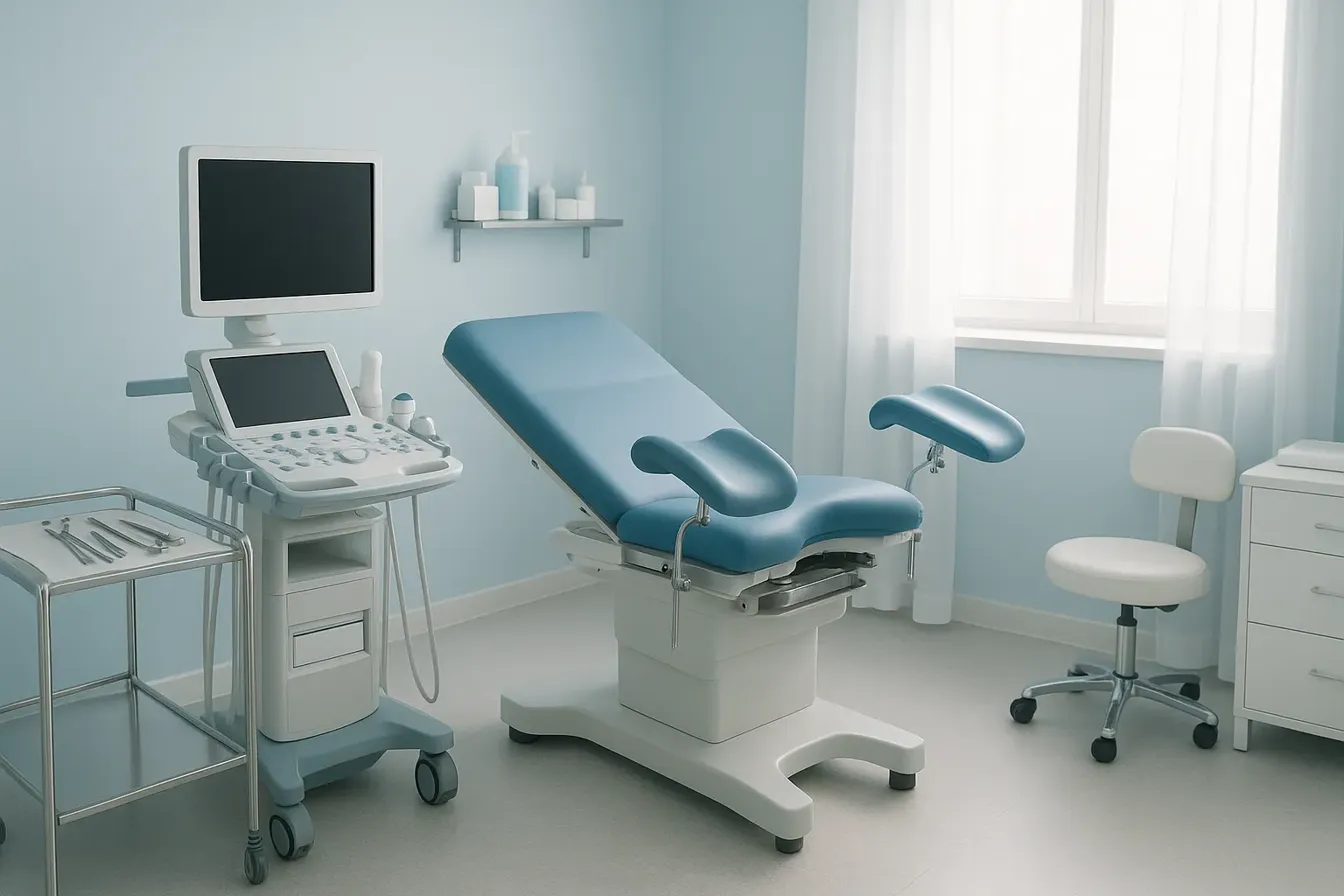Navigating VBAC: Key Insights for Expectant Mothers After Cesarean

Understanding Birth Control: The Foundation for Informed Choices
Overview of Various Birth Control Methods
Birth control methods offer a range of options to suit different needs and lifestyles. These include hormonal methods such as pills, patches, rings, injections, and implants. Hormonal IUDs like Mirena and Kyleena and non-hormonal options like the copper IUD (ParaGard) provide long-term protection, lasting from 3 to 10 years. Barrier methods—such as condoms, diaphragms, and sponges—create a physical barrier to prevent pregnancy and condoms additionally protect against sexually transmitted infections (STIs). Permanent methods, including tubal ligation for women and vasectomy for men, offer nearly 100% effectiveness for those certain they do not want future pregnancies. Emergency contraception options, such as Plan B or Ella pills and the copper IUD, are available to prevent pregnancy after unprotected sex.
Aligning Birth Control with Lifestyle and Health Goals
Selecting the right birth control involves understanding how each option fits into your personal lifestyle and health profile. For example, short-acting hormonal methods require consistent use and may be suitable for women with regular routines, while long-acting reversible contraceptives (LARCs) offer convenience for those seeking low-maintenance care. Women with hormone sensitivities or certain medical conditions might prefer low-hormone or non-hormonal options. Additionally, factors like age, smoking status, and plans for future pregnancies play crucial roles in choice.
Importance of Personalized Healthcare Guidance
Healthcare providers play an essential role in guiding women through the decision-making process. OB-GYNs and family planning clinics in Queens, NY, offer personalized consultations that consider medical history, lifestyle, and reproductive goals. This ensures that birth control is both safe and effective, minimizing risks such as blood clots or complications in specific populations. Open discussions with providers also enable access to the most suitable methods, from short-term pills to long-term implants or IUDs, enhancing overall reproductive health and satisfaction.
Adolescents and Birth Control: Prioritizing Safety and Guidance

What birth control options are recommended for teenagers?
Adolescents in Queens, NY, benefit from a range of birth control options for teens recommended by healthcare experts. The American Academy of Pediatrics birth control recommendations suggest hormonal options such as pills, patches, injections, and vaginal rings for teens. However, long-acting reversible contraceptives (LARCs), including implants and intrauterine devices (IUDs), are highly effective and particularly suitable for teens seeking low-maintenance and reliable contraception. Additionally, barrier methods and condom use, especially condoms, are strongly advised for their dual role in preventing pregnancy and protecting against sexually transmitted infections (STIs).
How should adolescents receive information and support about contraception?
To promote informed decisions, pediatricians play a vital role by engaging adolescents in yearly private discussions focused on pediatrician sexual health discussions, contraception methods, and STI prevention. This personalized counseling ensures teens receive age-appropriate, medically sound information tailored to their needs and circumstances. Equally important is fostering parent-teen communication on contraception about safe sex practices and contraception. Healthcare providers support and encourage these dialogues, which help build trust and empower adolescents to make responsible choices regarding their sexual health.
Overall, the combination of professional guidance from pediatricians, effective contraceptive options like birth control implants and IUDs, and condom use for STI prevention creates a holistic approach to adolescent reproductive care that prioritizes safety, effectiveness, and informed consent.
Young Adults: Balancing Lifestyle and Long-Term Contraception Goals
What birth control options are best for young adult women?
Young adult women have a range of birth control methods to suit both their lifestyle and long-term reproductive plans. Short-acting hormonal contraceptives—including pills, patches, vaginal rings, and injections—offer effectiveness rates between 91% and 95% when used correctly. These methods require consistent adherence to daily, weekly, or monthly schedules.
For those seeking more convenient, low-maintenance options, long-acting reversible contraceptives (LARCs) like hormonal intrauterine devices (IUDs) and implants provide nearly 99% effectiveness. Hormonal IUDs such as Mirena or Skyla offer protection for 3 to 7 years, while implants like Nexplanon last up to 5 years. Both options are discreet, require minimal upkeep, and fertility returns promptly once removed.
How do hormonal methods benefit menstrual health?
Hormonal contraceptives often yield additional health benefits by easing menstrual symptoms. Many women experience lighter, shorter, or even absent periods with methods like pills or hormonal IUDs. Low-hormone birth control pills are a helpful alternative for women who are sensitive to hormones or seeking relief from menopause or perimenopause symptoms.
However, it is crucial for young women to adhere strictly to prescribed regimens with short-acting hormonal methods to maintain effectiveness. Consistent use ensures both efficient pregnancy prevention and management of menstrual benefits.
In summary, young adults can balance immediate lifestyle needs and long-term contraception goals by choosing between short-acting hormonal methods and highly effective, low-maintenance LARCs. Consulting a healthcare provider can help tailor the best birth control approach to individual health, preferences, and future plans.
Long-Acting Reversible Contraceptives (LARCs): Effective and Convenient Options

What are LARCs and how effective are they?
Long-acting reversible contraceptives (LARCs) are birth control methods that provide reliable contraception for several years with minimal maintenance. They include hormonal intrauterine devices (IUDs) like Mirena, Skyla, Kyleena, and implants such as Nexplanon. Non-hormonal options include copper IUDs like ParaGard. These methods are around 99% effective, significantly reducing the risk of unintended pregnancy.
Types of LARCs including hormonal and copper IUDs, implants
- Hormonal IUDs: Devices like Mirena and Skyla release small amounts of progestin locally in the uterus to prevent pregnancy, lasting from 3 to 7 years.
- Copper IUDs: Copper IUDs like ParaGard work by using copper as a natural spermicide and can last up to 10-12 years, offering hormone-free contraception.
- Implants: Nexplanon is a small rod inserted under the skin of the upper arm that releases etonogestrel hormone and remains effective for up to 4-5 years.
Duration of effectiveness
- Hormonal IUDs: 3-7 years depending on the brand.
- Copper IUDs: Up to 10-12 years.
- Implants: Approximately 4-5 years.
Mechanism of action
Hormonal LARCs prevent fertilization by thickening cervical mucus and sometimes suppressing ovulation. Copper IUDs create an environment toxic to sperm, preventing fertilization. For more on these mechanisms, see hormonal IUDs and implants and copper IUDs.
Suitability for various ages including teens and adults
LARCs are suitable for most women, including teenagers. The American Academy of Pediatrics birth control recommendations recommend LARCs as first-line options for sexually active adolescents due to their high efficacy, safety, and low maintenance requirements.
Non-hormonal options
Copper IUDs like ParaGard provide a hormone-free alternative for those sensitive to hormones or preferring to avoid them. More about non-hormonal and hormonal options can be found at birth control methods.
Impact on future fertility
Once removed, fertility typically returns quickly, making LARCs a reversible and convenient contraception choice for women planning pregnancy later. For additional family planning and contraception services in Queens, NY, including these options, check Family Planning and Contraception.
Overall, LARCs provide Queens, NY women with effective, long-term, and reversible contraception options tailored to their lifestyles and health needs. For specialized local services, see birth control options in Queens NY and Birth Control Services in Queens NY.
Barrier Methods and STI Prevention: Essential Considerations Across Age Groups

Types of Barrier Methods: Condoms, Diaphragms, Sponges
Barrier methods of birth control include condoms, diaphragms, and sponges. Condoms, available for both males and females, create a physical shield to prevent sperm from reaching the egg. Diaphragms are shallow, dome-shaped cups inserted into the vagina to cover the cervix, while sponges combine a physical barrier with spermicide to reduce pregnancy risk. Learn more about barrier methods effectiveness and birth control methods.
How Effective Are Barrier Methods for Birth Control and STI Prevention?
Barrier methods generally offer 71-88% effectiveness in preventing pregnancy when used correctly. Condoms stand out because they are the only barrier method that also protects against sexually transmitted infections (STIs), including HIV. Diaphragms and sponges do not provide STI protection. For more information, see Protection against STIs and barrier methods and condom use.
Availability Over the Counter
Condoms are widely accessible over the counter in Queens, NY, and beyond, making them a convenient option for immediate and consistent use. This accessibility plays a critical role in public health through reducing unintended pregnancies and STI transmission. Learn about condoms availability and birth control options in Queens NY.
Importance in Comprehensive Sexual Health
Incorporating barrier methods, especially condoms, into birth control routines is essential for comprehensive sexual health. Their dual role in pregnancy prevention and STI protection complements other contraceptive options that may not address infection risks, supporting safer sexual practices across all age groups. For detailed guidance, see choosing the right birth control and consulting with healthcare providers.
Choosing Permanent Contraception: Options and Considerations
What permanent birth control options are available for women?
Permanent contraception offers a highly effective solution for women who are certain they do not want future pregnancies. The two primary methods are tubal ligation and salpingectomy. Tubal ligation involves closing or blocking the fallopian tubes to prevent eggs from reaching the uterus, while salpingectomy is the surgical removal of the fallopian tubes. Both procedures provide nearly 100% effectiveness in preventing pregnancy. For more details on permanent birth control options and surgical sterilization, see resources on permanent contraception options.
What are the effectiveness rates of permanent contraception?
Permanent contraception methods like tubal ligation and salpingectomy are close to 100% effective. For men, vasectomy, which involves cutting the vas deferens to block sperm, also offers similar near-perfect pregnancy prevention. You can find more about sterilization effectiveness and comparative rates of birth control methods.
Who is eligible for permanent contraception?
Eligibility generally requires that the individual is sure about not wanting future children. Healthcare providers assess factors such as age, overall health, reproductive goals, and any medical conditions before recommending permanent methods. These procedures are considered irreversible in most cases, so thorough counseling is essential. Learn more about consulting with healthcare providers and choosing the right birth control.
What emotional and reproductive considerations should be kept in mind?
Choosing permanent contraception can be accompanied by emotional and psychological impacts. Some women may experience feelings of regret or loss, particularly if circumstances change. It's important to consider potential impacts on reproductive plans carefully. Open discussion with trusted healthcare providers and possibly counseling can support informed decision-making. Resources on personalized contraception counseling and parent-teen communication on contraception may provide additional support.
Why consult healthcare providers before deciding?
A comprehensive consultation ensures personalized advice based on medical history, reproductive goals, and lifestyle. Providers can explain risks, benefits, alternative methods, and the procedure details. In Queens, NY, women can access specialized family planning and contraception services and birth control clinics that provide patient-centered counseling to facilitate informed choices regarding permanent contraception. For services available in Midtown NYC and Queens, check out birth control services in NYC.
Hormonal Birth Control and Health Risks: Tailoring Choices for Safety
Are there health risks associated with hormonal birth control?
Hormonal birth control methods, including pills, patches, rings, and implants, have been widely used and are effective but carry some health risks. Women over 35 who smoke or have cardiovascular risk factors face a small but increased risk of blood clots and other cardiovascular complications when using hormonal contraceptives.
Medical experts emphasize that although these risks exist, hormonal birth control remains generally safer than pregnancy for most women. Nevertheless, it is crucial to have a thorough medical consultation before starting any hormonal contraceptive to evaluate personal health history and risk factors.
For women affected by these risks, alternative birth control options are available. These include nonhormonal methods like copper IUDs, barrier methods effectiveness such as condoms, and permanent solutions like tubal ligation. Your healthcare provider can help tailor the safest contraceptive approach based on your health profile and lifestyle needs, ensuring effective and secure family planning.
Emergency Contraception: Immediate Options and Guidelines
What emergency contraception options are available and how should they be used?
Emergency contraception provides a crucial option to prevent pregnancy after unprotected sex. Common options include:
- Plan B: A pill effective if taken within 72 hours (3 days) after unprotected intercourse.
- Ella: Another pill that remains effective up to 120 hours (5 days) post-unprotected sex and is generally considered more effective than Plan B for later use.
- Copper IUD (ParaGard): A non-hormonal device inserted by a healthcare professional within 5 days; it offers the added benefit of long-term contraception for up to 10 years.
Timing for effectiveness
The effectiveness of emergency contraception timing and options depends significantly on timing. Plan B should be taken as soon as possible and is ideally used within 72 hours. Ella and copper IUDs are effective when used up to 5 days after unprotected intercourse, with efficacy decreasing the longer you wait. Prompt use maximizes pregnancy prevention.
Usage after unprotected sex
Emergency contraception is intended as a backup method and should not replace regular birth control. It is recommended following missed contraceptive methods, condom failure, or unprotected sex. Women should consult healthcare providers to determine the best option based on timing and individual circumstances.
Accessibility considerations
Plan B is commonly available over the counter at pharmacies, making it accessible without a prescription. Ella typically requires a prescription, while the copper IUD necessitates a clinical visit for insertion. Many clinics and healthcare providers in Queens, NY, offer counseling and timely access to these methods.
Guidance from healthcare professionals
Healthcare providers emphasize the importance of personalized advice when selecting emergency contraception. They can assess medical history, contraceptive needs, and provide safe insertion of devices like the copper IUD. Open communication ensures optimal timing and utilization of emergency contraception for effective pregnancy prevention.
Navigating Birth Control During Perimenopause and Menopause

How does birth control use change during perimenopause and menopause?
During perimenopause and menopause, many women experience hormone fluctuations that can cause uncomfortable symptoms such as irregular periods, hot flashes, and mood changes. Low-hormone birth control pills offer a valuable option to not only provide effective contraception but also help alleviate these symptoms. These pills contain lower doses of hormones, making them suitable for women sensitive to hormonal changes or those seeking symptom relief without the higher hormone levels found in other contraceptives.
As fertility naturally declines during this time, many women wonder about their need for contraception. Despite the reduced chance of pregnancy, it remains essential to use an appropriate contraceptive method until menopause is confirmed through the absence of menstrual periods for 12 months.
An important consideration with hormonal birth control during perimenopause is the potential increase in health risks, such as blood clots and cardiovascular issues, particularly for women over 35 who smoke or have certain medical conditions. This underscores the need for personalized risk versus benefit assessment. For more on risks of hormonal methods and hormonal birth control risks, see the linked resources.
Consulting with a healthcare provider is crucial to determine the safest and most effective contraceptive method tailored to your health history, lifestyle, and symptom management goals. Healthcare providers in Queens, NY are equipped to guide women through this transitional phase with expert advice and access to a range of birth control options.
Access and Personalized Care: Birth Control Services in Queens, NY

Where can women in Queens, NY access comprehensive birth control services?
Women in Queens, NY have access to personalized contraception counseling and a full range of birth control options through several local healthcare providers. Clinics affiliated with prominent organizations like Northwell Health and NewYork-Presbyterian offer comprehensive reproductive care, including counseling, prescription birth control methods, and permanent contraception.
Availability of a full range of birth control methods including LARCs, pills, and permanent options
These healthcare providers offer a wide variety of methods to fit diverse needs. [Long-acting reversible contraceptives (LARCs)] such as hormonal IUDs and implants and copper IUDs provide highly effective, long-term prevention. Shorter-term options like birth control pills, patches, and rings are also available, as well as barrier methods including condoms. For women seeking permanent birth control options, tubal ligation and salpingectomy procedures are offered with nearly 100% effectiveness.
Role of women-led healthcare providers specializing in obstetrics and gynecology
Many of these services are provided by women-led clinics specializing in Family Planning and Contraception, ensuring compassionate, patient-centered care. These providers focus on individual health conditions and reproductive goals, guiding patients through safe and effective choosing the right birth control.
Importance of personalized contraception planning
Personalized planning is critical, as birth control needs vary depending on lifestyle, health, and long-term family planning. Providers in Queens offer thorough consultations to select methods aligning with each woman’s unique preferences and medical history. This personalized approach enhances safety, satisfaction, and overall reproductive health outcomes.
Post-Abortion Contraception and Follow-Up Care
What birth control and care options are available following abortion?
Post-abortion care focuses on comprehensive contraception counseling to prevent unintended pregnancies. After a safe abortion—whether surgical or medication-based—healthcare providers emphasize patient safety and comfort, using local anesthesia or sedation as appropriate.
Follow-up care is a crucial part of recovery, often including telehealth appointments that allow women to discuss their health status, manage side effects, and address concerns without needing in-person visits. These sessions also provide guidance on selecting effective birth control methods tailored to individual health and reproductive goals.
Safe abortion services at clinics in Queens, NY, offer privacy and professionalism, ensuring women can make informed decisions supported by trained providers. Contraception options following abortion include hormonal and non-hormonal methods, [long-acting reversible contraceptives (LARCs)], and [barrier methods], all chosen based on personal preferences and medical history.
This integrated approach aids in preventing complications, promoting reproductive health, and supporting women through their family planning journey with respect and compassion.
Empowering Women Through Personalized Birth Control Choices
Personalized Birth Control: Meeting Every Woman's Unique Needs
Choosing the right birth control method is a deeply personal decision that varies throughout a woman's life. Factors such as individual health, lifestyle, reproductive goals, and changing life phases all play a crucial role in determining the most suitable option.
Healthcare providers in Queens, NY, and beyond emphasize the importance of tailored contraceptive planning. Expert guidance ensures that women can safely and effectively manage their reproductive health while considering factors like hormone sensitivity, potential health risks, and convenience.
As women transition through different stages—from adolescence, reproductive years, to perimenopause—their contraceptive needs evolve. For example, teens might prefer long-acting reversible contraceptives (LARCs) for reliable, maintenance-free protection, while women approaching menopause might benefit from low-hormone options addressing both contraception and symptom relief.
Consulting with trained OB-GYNs or pediatricians helps women navigate these options, enabling informed decisions and adapting to shifting needs over time. This personalized approach empowers women to take control of their health, confidence, and family planning choices with compassion and professionalism.





.png)